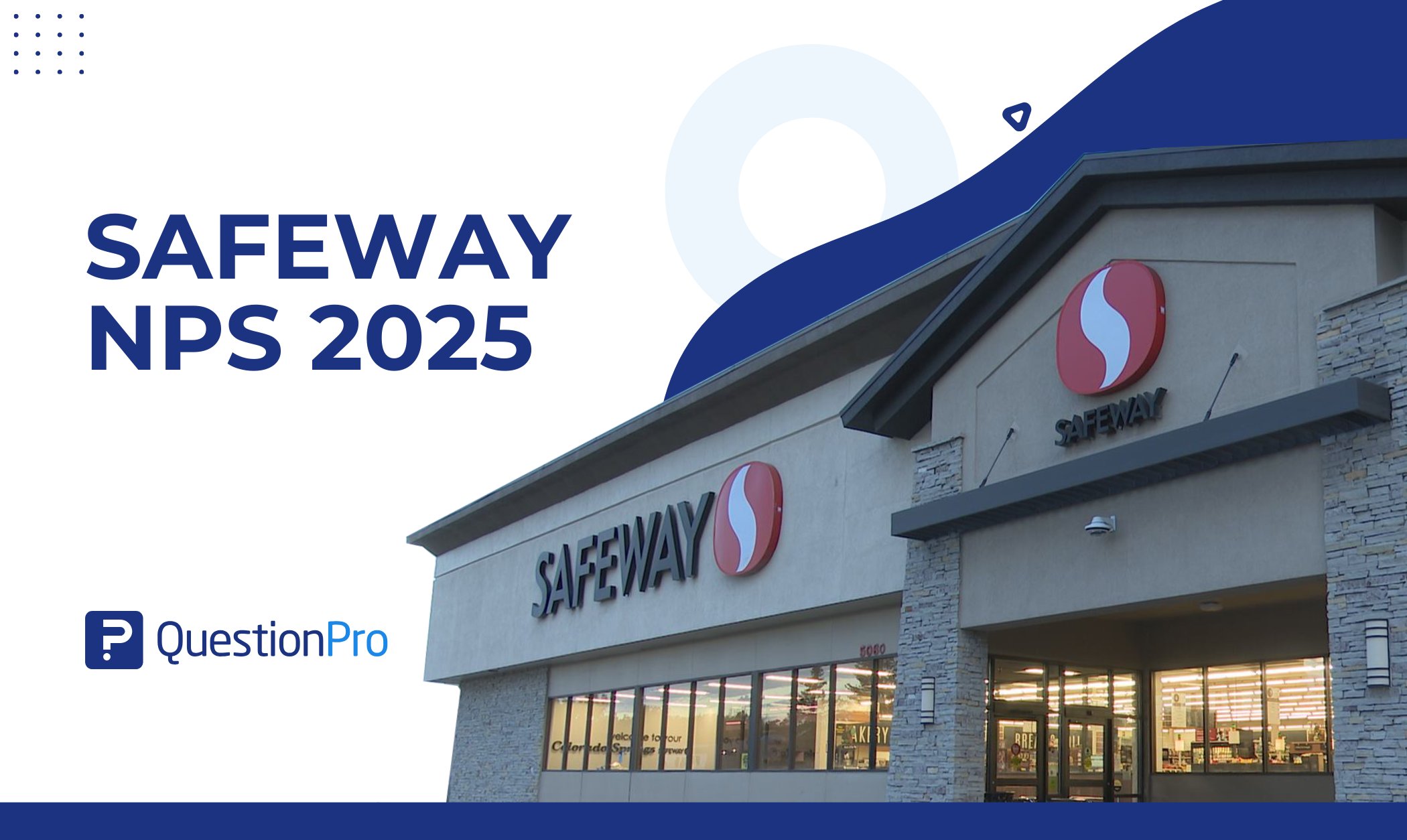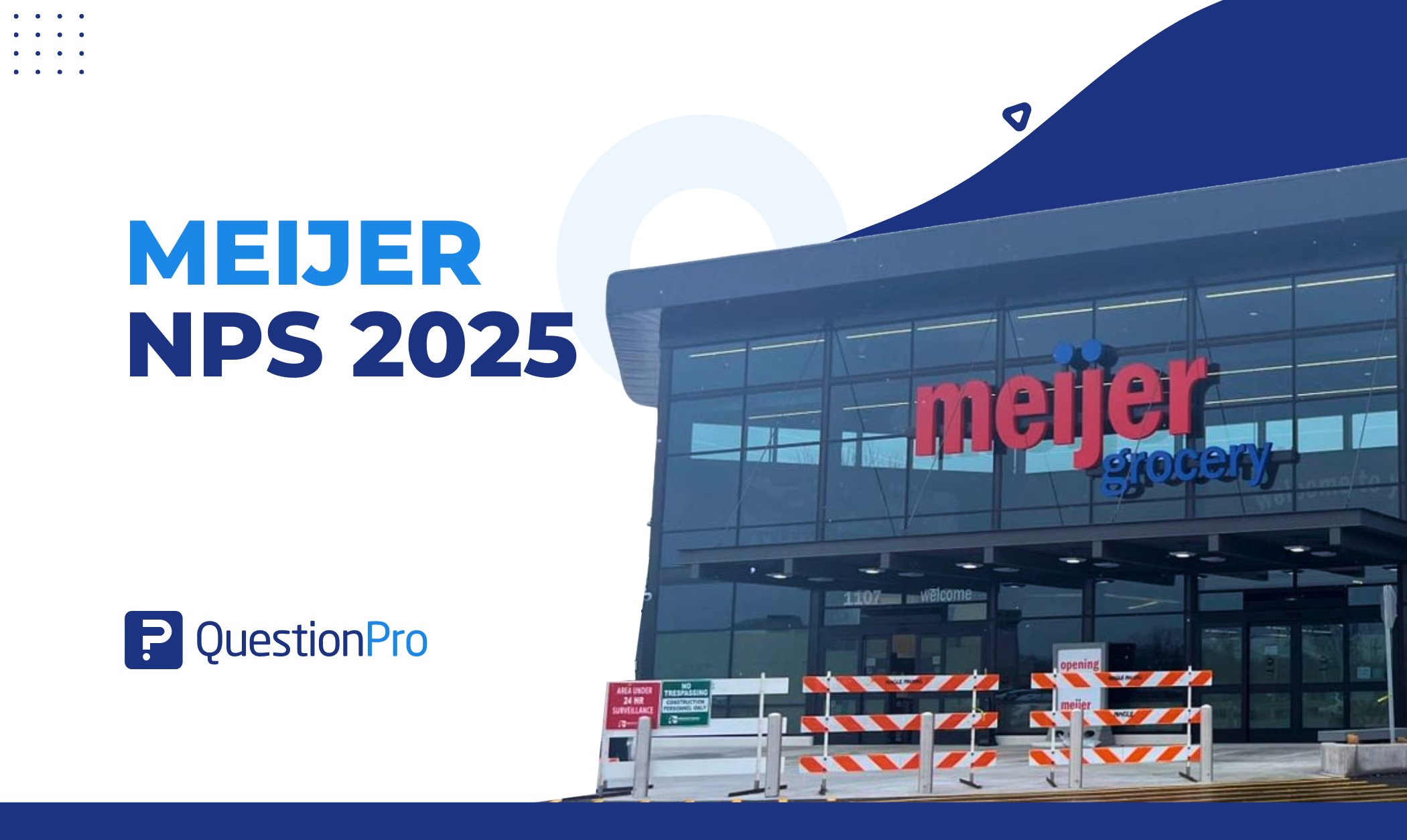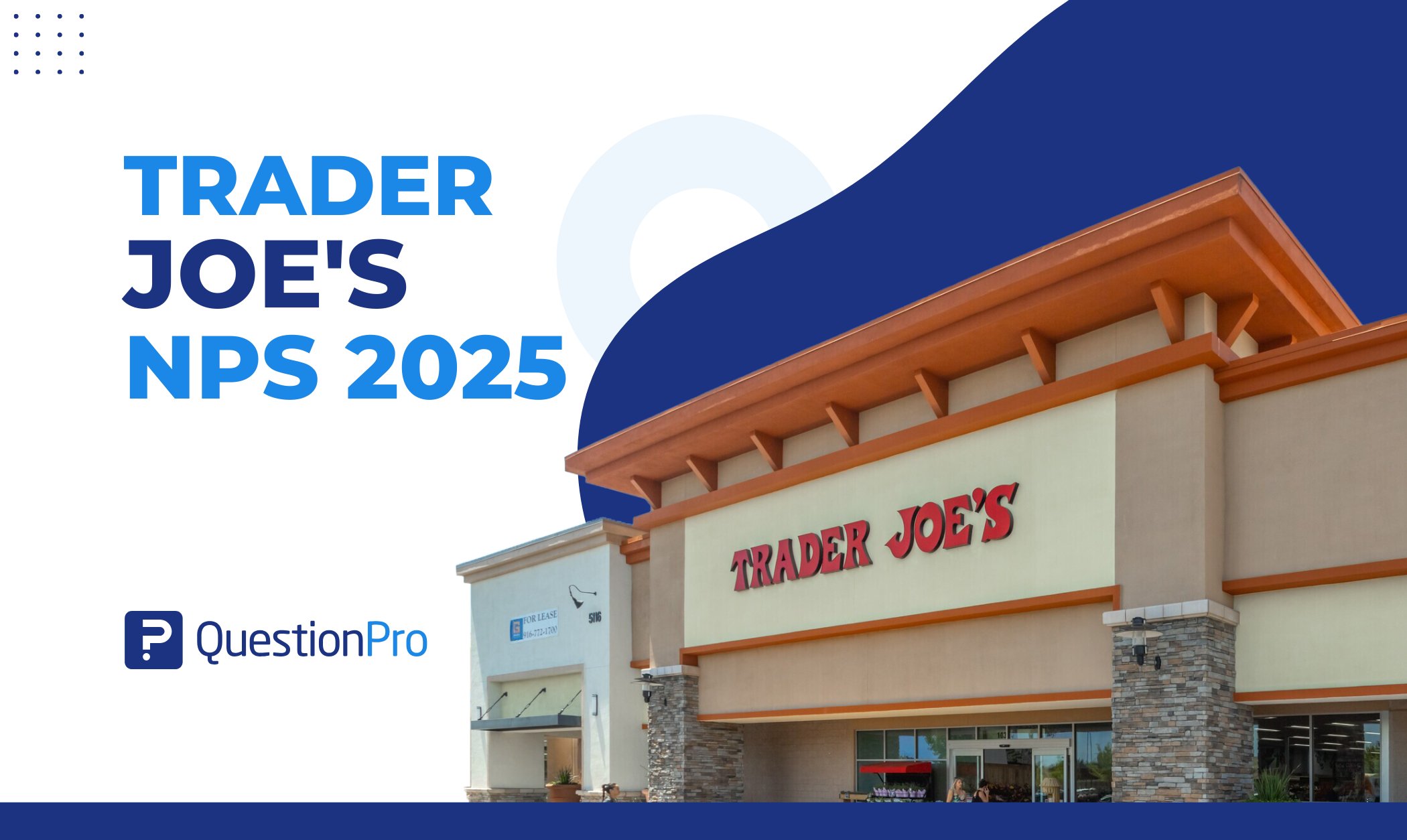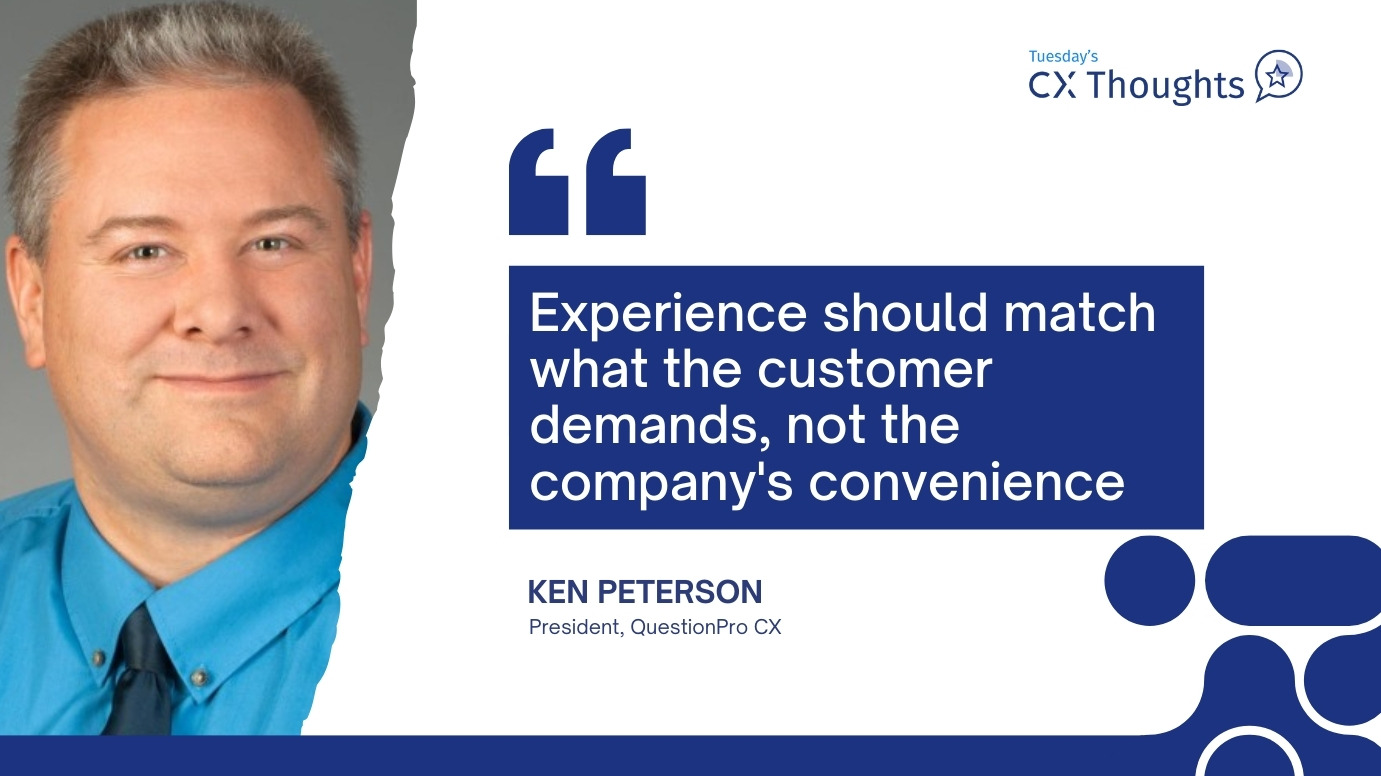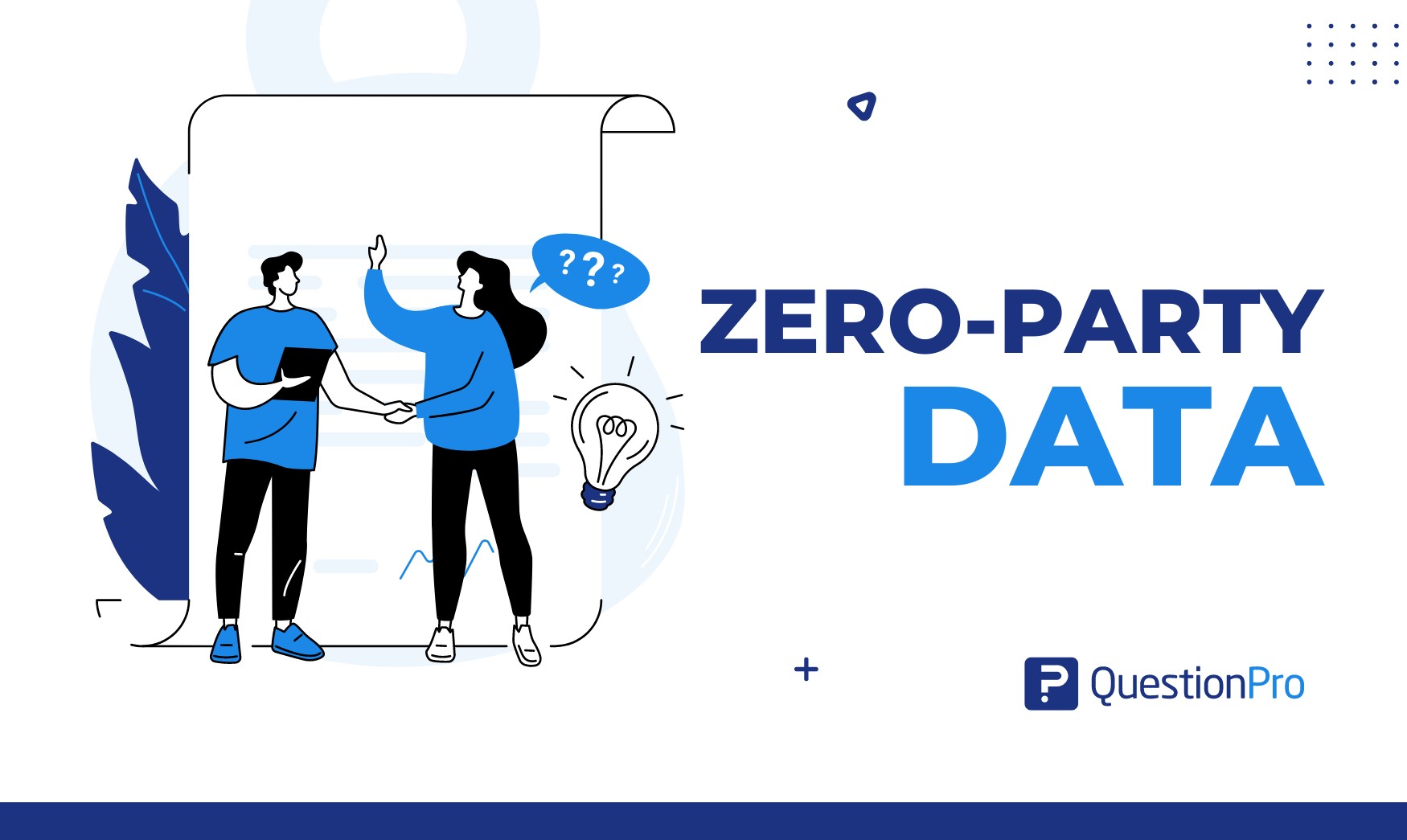
Imagine you walk into a cafe, and the barista knows your favorite coffee without you saying a word. That’s the magic of zero-party data. It helps businesses understand you better, tailoring their offerings to your preferences. This makes your experience smoother and ensures you get what you want without the hassle.
In this blog, we will discuss what zero-party data is and why it is important, and we will also explore some strategies to get this data.
What is Zero-Party Data?
Zero-party data refers to information that is deliberately and proactively shared by individuals with companies or organizations. Unlike first-party data, typically gathered through observation or interaction with a company’s products or services, the individuals explicitly provide zero-party data.
This data is often obtained through surveys, preference center data, feedback forms, and other direct means where individuals knowingly and willingly offer information about their preferences, interests, behaviors, and intentions.
It is highly valuable to businesses because it offers insights into consumers’ specific needs and desires. It allows companies to effectively tailor their products, services, and marketing efforts. Additionally, because consumers willingly share zero-party data, it tends to be more accurate and reliable than other data types.
Importance of Zero Party Data
This data holds significant importance for businesses and organizations for several reasons:
Direct and Accurate Insights
Individuals voluntarily provide zero-party data, offering direct insights into their preferences, interests, and behaviors. This information is often more accurate and reliable compared to data obtained through other means, such as third-party sources.
Enhanced Personalization
By capturing zero-party data, businesses can better understand their customers’ needs. It allows them to more effectively personalize products, services, and marketing efforts. This leads to improved customer experiences and increased customer satisfaction.
Building Trust and Loyalty
When individuals willingly share their preferences and information, it creates a sense of trust between them and the organization. Respecting consumers’ privacy preferences and using zero-party data transparently can help build long-term relationships and create customer loyalty.
Compliance with Privacy Regulations
With the growing emphasis on data privacy regulations such as GDPR (General Data Protection Regulation) and CCPA (California Consumer Privacy Act), collecting zero-party data ensures compliance with privacy laws. Since individuals provide this data voluntarily, it aligns with the principles of consent and customer data protection.
Reduced Reliance on Third-party Data
As concerns over data privacy and third-party data sources grow, businesses are increasingly turning to zero-party data as a more ethical and reliable alternative. Relying less on third-party data or second-party data reduces privacy risks and potential regulatory issues associated with data breaches or misuse.
Improved Marketing Effectiveness
Businesses can create highly targeted and relevant marketing campaigns by exploring zero-party data. Understanding customers’ needs allows for more precise segmentation and messaging, resulting in higher engagement rates and better marketing ROI.
Product and Service Innovation
It can provide valuable insights into unmet customer needs and emerging trends, informing product and service development initiatives. By incorporating customer feedback and customer behavior into the innovation process, businesses can create offerings that better resonate with their target audience.
Zero-party data offers a more ethical, transparent, and effective approach to collecting data and personalization, benefiting both businesses and consumers.
Zero-Party Data VS First-Party Data
Zero-party data and first-party data are related terms in the context of collecting data and marketing, but they refer to different types of information. Let’s clarify each concept:
First-Party Data
- Definition: First-party data is information that a company collects directly from its audience or customers. This data is typically obtained through interactions with the company’s own channels, such as websites, mobile apps, and social media platforms.
- Source: It originates directly from the users or customers who willingly share their information with the company.
- Examples: Customer names, email addresses, purchase history, website interactions, and any data collected through direct engagements.
Zero-Party Data
- Definition: Zero-party data is also voluntarily provided by the users, but it goes a step further. This type of data is explicitly and proactively shared by individuals with a company, often through surveys, feedback forms, or other explicit communication.
- Source: It comes directly from the users, similar to first-party data, but it is explicitly given in response to a direct inquiry or request for information.
- Examples: Preferences, opinions, survey responses, and any data explicitly provided by the users in response to specific questions.
Key Differences
- Voluntariness: While both types involve willingly shared information, zero-party data emphasizes the proactive and explicit nature of the user’s contribution. Users provide this data with a clear understanding of why and how it will be used.
- Collection Methods: First-party data is often collected through user interactions with the company’s owned platforms, while zero-party data is collected through explicit requests or surveys.
- Use Cases: First-party data is more general and includes data obtained through various user interactions. Zero-party data is more specific, focusing on information explicitly provided by users in response to specific queries.
Both first-party data and zero-party data are valuable for businesses, providing insights into customer behaviors, customer preferences, and opinions. The key distinction lies in the depth of user engagement and the explicitness of information sharing in the case of zero-party data.
Strategies to Collect Zero-Party Data
Here, we’ll explore effective strategies on how to collect zero-party data, creating a personalized, transparent, and mutually beneficial relationship between brands and their customers.
Create a Personalized Experience
Creating a personalized experience is the cornerstone of successful zero-party data collection. Tailor your approach to align with your brand identity and resonate with your audience. Utilize interactive methods such as quizzes, surveys, and contests, ensuring that the experience is informative and enjoyable for users.
Prioritize Transparency
Transparency is the bedrock of trust. Clearly communicate with your customers about the purpose and benefits of data sharing. When users understand how their data will be used and the value they will receive in return, they are more likely to engage willingly.
Emphasize the Value of Exchange
Highlight the value exchange between your customers and your brand. Make it clear that by sharing their preferences, opinions, and information, they will receive tangible benefits such as personalized product recommendations, exclusive discounts, or special offers tailored to their needs and interests.
Explore Interactive Experiences
Consider incorporating interactive experiences into your zero-party data strategy. Platforms like Jebbit specialize in creating engaging and interactive content that seamlessly integrates with your brand. These experiences not only capture valuable data but also enhance user engagement.
Diversify Data Collection Methods
Employ a variety of data collection methods. Whether through quizzes, surveys, contests, or loyalty programs, offer users different avenues to comfortably share their information. This diversity ensures that you capture a comprehensive view of your audience’s preferences and behaviors.
Showcase the Ultimate Value Exchange
Illustrate the broader benefits of zero-party data collection. Your brand can better understand users with the insights gained, enabling a more streamlined and personalized experience. Users, in turn, save time by receiving recommendations tailored to their preferences, fostering a positive and efficient interaction.
Build Strong Customer Loyalty
Highlight how a personalized and on-brand experience contributes to building strong customer loyalty. When customers feel understood and valued, it establishes a positive relationship that goes beyond a one-time transaction. This loyalty can translate into repeat business and positive word-of-mouth marketing.
Gathering zero-party data is not just about gathering information – it’s about creating a symbiotic relationship between your brand and your customers. Businesses can unlock actionable insights and build lasting connections with their audience by prioritizing personalization, transparency, and value exchange.
As you explore this journey, remember that the key lies in making the data collection process necessary and enjoyable for your users.
How Can QuestionPro Help in Collecting Zero-Party Data?
QuestionPro is a versatile survey and research platform that can be instrumental in collecting zero-party data. With its array of features and capabilities, QuestionPro facilitates the creation of engaging and personalized surveys, quizzes, and interactive experiences that encourage users to willingly share valuable information. Here’s how QuestionPro can assist in collecting zero-party data:
- Customizable Surveys and Questionnaires: QuestionPro provides tools to create highly customizable surveys and questionnaires tailored to your specific needs. You can design questions that elicit zero-party data, such as preferences, opinions, and feedback.
- Interactive Quizzes and Polls: Engage your audience with interactive quizzes and polls to make the information collection process more enjoyable. These features can be used to gather information in a gamified manner, encouraging participation and higher response rates.
- Dynamic Forms and Feedback Collection: Use dynamic forms and feedback collection mechanisms to create a seamless and user-friendly experience. This ensures that users can easily provide their zero-party data without encountering barriers or friction.
- Advanced Survey Logic: Implement advanced survey logic to personalize the survey experience based on user responses. This ensures that users only see questions relevant to their preferences, making the survey more engaging and efficient.
- Mobile-Optimized Surveys: With QuestionPro, you can create mobile-optimized surveys, making it convenient for users to participate from their smartphones or tablets. This accessibility enhances the reach and engagement of your data collection efforts.
- Integration with Social Media: Leverage QuestionPro’s integration with social media platforms to reach a broader audience. You can share surveys, quizzes, and interactive content directly on social media channels, encouraging users to participate and share their preferences.
- Real-time Analytics and Reporting: Gain valuable insights in real-time with QuestionPro’s analytics and reporting features. Monitor responses as they come in and analyze data trends promptly, allowing for agile decision-making based on the collected zero-party data.
- Email Campaigns and Invitations: Utilize QuestionPro’s capabilities to conduct email campaigns and send personalized invitations to your audience. This can help reach out to specific segments of your user base and encourage them to participate in collecting data.
Conclusion
Zero-party data is reshaping the data landscape by putting control in the hands of consumers. By understanding its significance and employing effective collection strategies, businesses can build more meaningful connections with their audience.
It will deliver personalized experiences while maintaining trust and transparency. As the digital landscape continues to evolve, embracing zero-party data is not just a strategic move but a commitment to customer-centricity and ethical data practices.
By exploring the features of QuestionPro, businesses can create a seamless, personalized, and interactive data collection experience. Whether through surveys, quizzes, or other engagement methods, QuestionPro empowers organizations to collect zero-party data efficiently and gain valuable insights into user preferences, opinions, and behaviors. If you want to learn more, contact QuestionPro!




